Unforgettable memories of the Nghe An Youth Volunteers at Dien Bien Phu.
(Baonghean.vn) - Among the more than 16,000 young volunteers who served in the Dien Bien Phu Campaign, Nghe An also had thousands of young volunteers who volunteered with unwavering determination. 70 years have passed, but the memories of that fiery era remain unforgettable…
REMEMBERING THE MOTHER OF MUONG LA
Born in Da Son commune, Do Luong district, former Youth Volunteer Corps soldier Pham Ngoc Hoa is now 88 years old. At that age, he still commands respect for his optimistic spirit and rare mental acuity.
Perhaps that is why the Organizing Committee of the program honoring and expressing gratitude to the heroic martyrs, soldiers of Dien Bien Phu, youth volunteers, and civilian workers who directly participated in the Dien Bien Phu campaign in Nghe An province trusted and chose him to speak and interact in the program.
In response to that trust, these days he is searching for mementos and memories that were with him throughout his years of service and combat.
And then, his emotions seemed to freeze when he found the poem he had written for his mother in Muong La, a poem he had composed in his deep longing for a special mother he had met during the Dien Bien Phu Campaign.
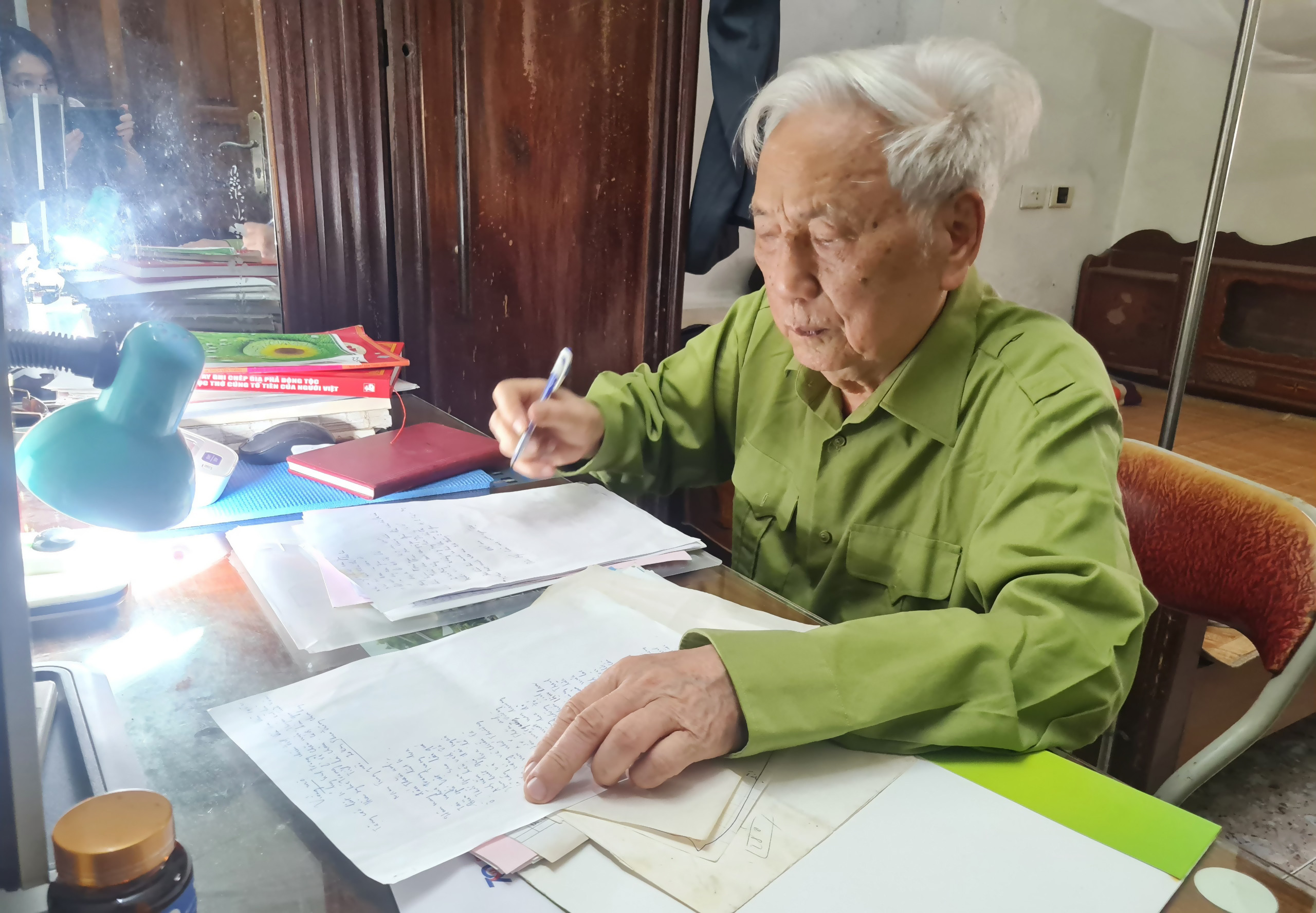
Going back in time to October 1953, Pham Ngoc Hoa was a 17-year-old boy with many dreams and aspirations. Hoa, along with three friends from Da Thi hamlet, Da Son commune, enthusiastically joined the Youth Volunteer Force in the Dien Bien Phu Campaign.
1953 marked the transition of the Vietnamese people's resistance against the French to a general counter-offensive, and the youth of Nghe An province were filled with a determination to defeat the enemy. Following the organization's assignment, four young men from Da Thi were given different assignments, but all shared a common joy as they set off to serve in the war.
Marching from Nghe An to Muong La district in Son La province, Mr. Hoa's unit was allowed to rest overnight in a house belonging to the Thai ethnic minority villagers. Mr. Hoa and some of his comrades slept in the simple stilt house of a mother who was nearly 60 years old. In the darkness of the night, young Pham Ngoc Hoa, missing his home and his mother, sat alone on the porch, tears welling up in his eyes.
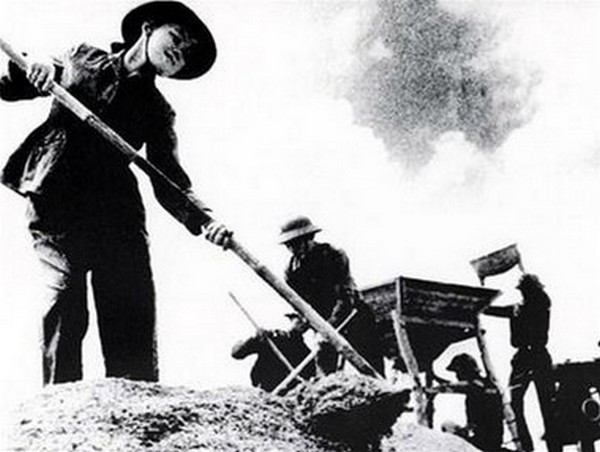
Seeing this, the Thai ethnic woman called Hoa to sit by the fire with her. Noticing a tear in Hoa's shirt, she quickly went to find needle and thread to sew it back together. In the flickering firelight, her eyes and hands gently followed the stitches. Her affection for the young volunteer was like that of a mother for her son. After carefully mending the shirt, she gently put it back on Hoa, and in that moment, tears welled up in both their eyes.
"During those years, the people of Northwest Vietnam actively supported the resistance with manpower and resources. They always regarded the soldiers and the youth volunteer force as their own children and did everything they could to help serve the resistance."
For me, receiving the affection of these special mothers here is a motivation for me to strive to complete the assigned tasks, so that the country will no longer be at war, and no more elderly mothers or young children will suffer harm caused by bombs and bullets.”
And so, the four young men from Da Thi village held firm to their spirits and endured the most challenging days of the campaign. One served in combat at Ta Vai Bridge (Chieng Hac commune, Yen Chau district, Son La province); two were stationed at the foot of Pha Din Pass, while Mr. Hoa and his comrades participated in road construction and defusing unexploded bombs at the summit of Pha Din Pass.
Throughout those days of "digging tunnels in the mountains, sleeping in bunkers, enduring torrential rain, and eating meager rations," Mr. Hoa and the youth volunteer force fought day and night against the enemy, hour by hour, minute by minute. They simultaneously defused unexploded bombs, filled bomb craters, and restored roads, using every means possible to keep traffic flowing and supplies reaching the front lines...
At the end of the campaign, two men became martyrs, forever resting in the embrace of their motherland in the prime of their youth. One man died shortly after peace was restored, due to severely weakened health following bouts of severe malaria.
Now, as the whole country commemorates the 70th anniversary of the historic Dien Bien Phu Victory, Mr. Hoa recalls the years gone by. He reminisces with emotion as he reads the poems he wrote all those years ago, dedicated to his mother in Muong La:“…The patched coat feels warm when I put it on/My heart aches with longing for my mother/Northwest, Dien Bien, Na San, Muong La/There are old mothers with compassionate hearts/After half a century, I return to visit my mother/The news that my mother is no longer here leaves my heart empty/The sky of Northwest, Dien Bien in the season of white bauhinia flowers/The earth whispers, hearing my mother calling my name…”.
THE CROW'S CROSSROADS AND THE BOND OF COMRADESHIP
"The Co Noi junction (Mai Son district, Son La province) was one of the most crucial sections of the Dien Bien Phu Campaign. All support activities, including the transportation of weapons, food, and laborers to the battlefield, had to pass through this vital junction. Therefore, the French colonialists ordered their air force to turn the Co Noi junction into a "swamp" by any means necessary, aiming to cut off the supply route for weapons, food, and laborers to the Dien Bien Phu battlefield.
"Here, the enemy bombed and shelled fiercely, causing countless officers and soldiers to sacrifice their lives to protect this strategic point," Mr. Hoang Van Phai (born in 1936) - a former youth volunteer from Nghi Trung, Nghi Loc district, who participated in the Dien Bien Phu Campaign, shared with us.
As he shared his story, Mr. Phai held up a black-and-white photograph of his unit's squad leader from that time. This was the very person who had saved his life during the fierce fighting at Co Noi intersection all those years ago.
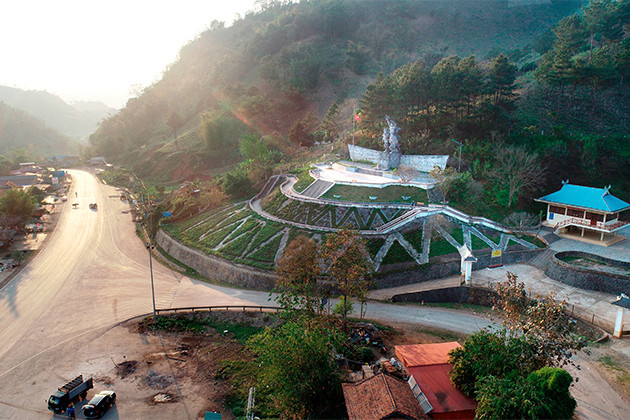
In a moment of emotional reflection, Mr. Phai recounted that the squad leader's name was Duong Manh Thinh, who was one year older than him and had served in combat nearly a year before him. At that time, Mr. Phai belonged to Team 40, serving in combat at Co Noi Junction (Mai Son district, Son La province).
Under the command of the squad leader, he and the soldiers in his unit steadfastly held their ground, coordinating with other units to promptly defuse unexploded bombs, level the road surface, and maintain the vital transportation artery.
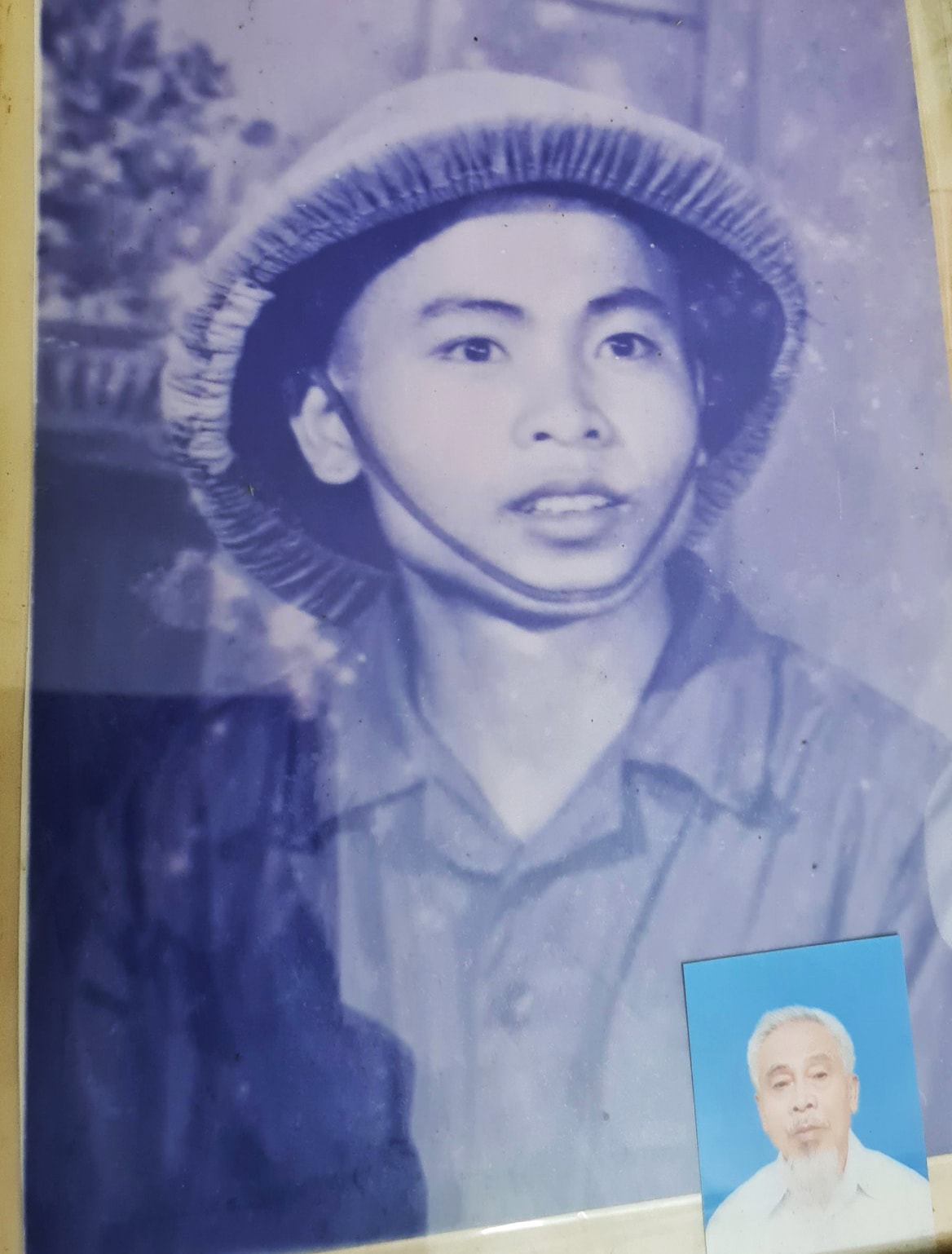
Due to prolonged combat service and repeated bouts of severe malaria affecting his weakened body, Mr. Phai was exhausted and fainted immediately after completing his task of filling bomb craters. Seeing his comrade in grave danger, his squad leader immediately carried him up.
Amidst the rain of bombs and bullets, the squad leader shielded him with his own body, carrying him over 2 kilometers to the medical station of the Youth Volunteer Force.
Laying his fallen comrade to the ground was the moment the squad leader was completely exhausted. Yet, after only a short rest, he returned to the area to continue his mission.
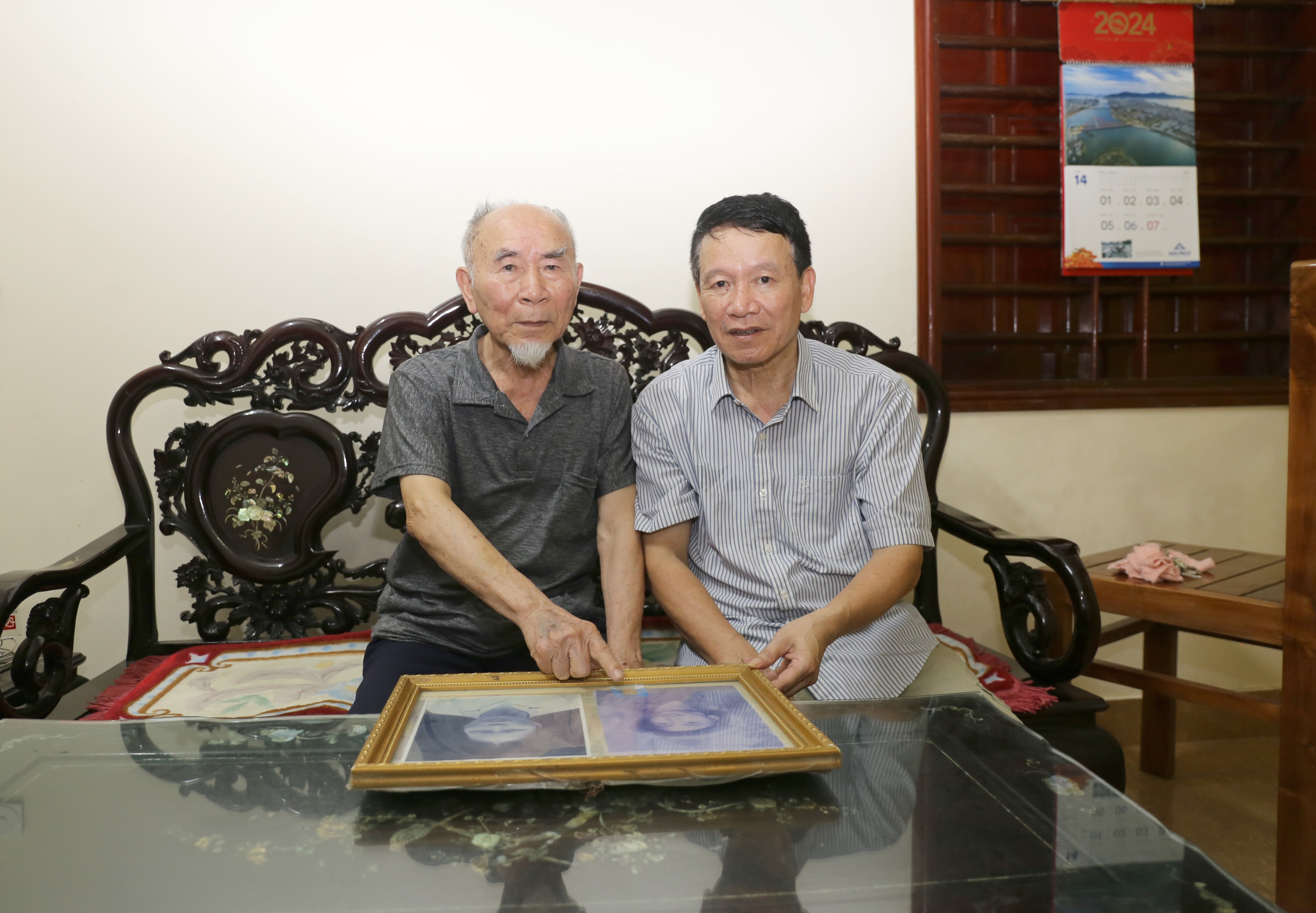
After peace was restored, remembering the kindness of the squad leader who had saved him years ago, Mr. Phai always visited and maintained a close comradeship with him.
Although the war is now a thing of the past, the Co Noi intersection and other landmarks associated with the Dien Bien Phu Campaign will forever remain historical witnesses to the fighting spirit and determination to win of our army and people in general, and the Youth Volunteer Force in particular.
It is the flame that ignites the glorious traditions of the nation, the driving force for the soldiers of yesteryear to continue the heroic epics of peacetime...
From February 1954, in response to the general mobilization order for the Dien Bien Phu Campaign, 5,438 young men from Nghe An province enthusiastically enlisted, exceeding the prescribed quota. All of these personnel promptly reinforced combat and support units across all battlefields of the Dien Bien Phu Campaign, contributing to the glorious victory of the Vietnamese nation that "shook the world."



